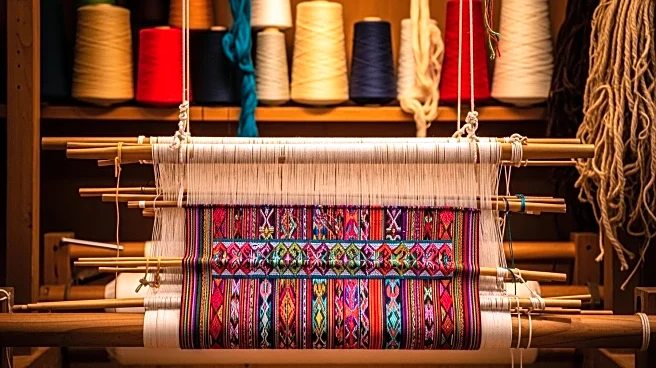What's Happening?
In Riohacha, Colombia, Wayuu weavers are striving to balance cultural preservation with economic opportunity as global demand for their traditional mochilas increases. These handwoven bags, once exclusive to the Wayuu people, are now popular worldwide, featured in fashion events and sold on platforms like Etsy and Amazon. While this demand has improved economic conditions for some Wayuu communities, it has also led to exploitation, with many artisans receiving minimal compensation from middlemen. Efforts are underway to empower these weavers through fair trade practices and direct sales platforms, ensuring they receive fair wages and recognition for their craftsmanship.
Why It's Important?
The situation of the Wayuu weavers highlights broader issues of cultural appropriation and economic exploitation in the global marketplace. As indigenous crafts gain popularity, there is a risk that traditional artisans may be marginalized, with profits going to intermediaries rather than the creators. This case underscores the importance of ethical consumerism and the need for systems that support fair trade and cultural preservation. By empowering indigenous artisans, there is potential for sustainable economic development that respects and values cultural heritage, providing a model for other indigenous communities facing similar challenges.
Beyond the Headlines
The story of the Wayuu weavers also raises questions about the role of technology in bridging cultural and economic gaps. Platforms that facilitate direct sales and communication between artisans and international buyers can help bypass exploitative middlemen. However, the use of AI tools and translation apps by foreign businesses to source products directly poses new challenges, potentially undercutting local entrepreneurs who aim to support fair trade. This dynamic illustrates the complex interplay between technology, globalization, and cultural preservation, highlighting the need for thoughtful approaches to integrating traditional crafts into the global economy.








